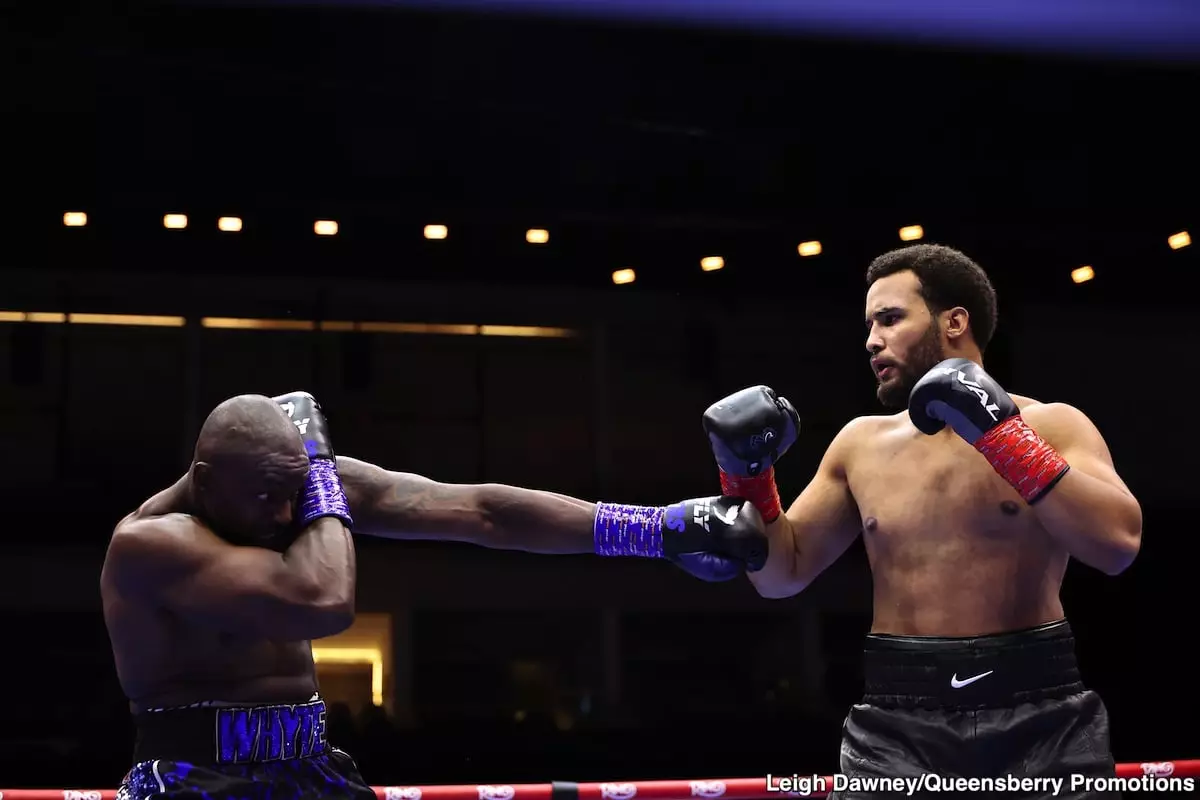In the ever-evolving world of heavyweight boxing, the story of Luis Ortiz typifies the relentless spirit of perseverance and the debate surrounding age and relevance in sport. At 46, Ortiz’s recent quick victory demonstrates not just physical resilience but an unyielding mental fortitude that refuses to fade into obscurity. While some may dismiss his comeback as a nostalgic revival, it’s crucial to recognize that fighters like Ortiz embody a rare blend of experience and grit that can be invaluable in today’s boxing landscape. His readiness to step back into the ring after months—even after years—of inactivity challenges the conventional wisdom that age inevitably diminishes ability. Instead, Ortiz exemplifies that a seasoned boxer’s ring intelligence, combined with durability, can still make waves, possibly disrupting the narratives of youth-driven hype.
The Boldness of Aspirations
What truly stands out from Ortiz’s recent comments is his audacious declaration of being “ready for anybody,” even in the twilight of his career. This level of confidence ignites a conversation about the mindset required for fighters to sustain their careers in a sport defined by youth and rapid turnover. His targeting of names like Oleksandr Usyk and Anthony Joshua—sealed with a notion that those fights are unlikely—reflects a fighter’s desire not just for legacy but for meaningful challenge. Yet, it’s his willingness to consider stepping down the ladder, testing himself against rising talents such as Moses Itauma, that reveals his ambition to leave a lasting imprint, perhaps beyond the typical expiration date. Ortiz’s boldness must be viewed not as arrogance but as an essential trait that keeps the sport alive—heroes pushing boundaries, refusing to fade quietly.
The Strategic Value of Testing Rising Stars
Fighting young, hungry fighters like Itauma isn’t just about nostalgia—there’s a strategic beauty in such matchups. Itauma, at only 20, embodies the future of heavyweight boxing, and facing an experienced veteran like Ortiz could serve as an essential learning experience rather than an easy payday. For Ortiz, such a bout offers an opportunity to stretch his legs against a southpaw who’s fast, modern, and hungry—attributes Ortiz is familiar with from his own formative years. For Itauma, fighting Ortiz could be a pivotal step, providing a high-profile test that could elevate his credibility. Moreover, if the fight takes place in a boxing-friendly jurisdiction like the UK, it could boost Ortiz’s marketability and offer him a stage well-suited to display his skills for one last hurrah. This clash risks being more than a mismatch; it could be a strategic chess move for both fighters—Ortiz seeking a challenging farewell, Itauma seeking invaluable experience.
Reassessing Age and Durability in Modern Boxing
Age often gets painted with a broad brushstroke as a limiting factor, but figures like Ortiz challenge this stereotype. His strength, durability, and ring intelligence (when combined with proper training) prove that aging fighters can still compete at high levels, provided they adapt and stay motivated. The notion that speed and agility are the sole yardsticks for success is outdated; experience, timing, and tactical awareness can compensate for physical decline. Ortiz’s recent performance and his expressed readiness to fight anyone reflect a deeper truth: boxing is as much mental as it is physical. Champions who recognize their limits but refuse to accept them—like Ortiz—remind us that the sport’s future lies not just in new prospects but also in seasoned warriors willing to test their limits.
Championing Courage Over Conformity
The most compelling aspect of Ortiz’s career resurgence is his refusal to conform to societal expectations about aging and sports longevity. His vocal confidence and openness to challenging both current champions and emerging talents signal a broader message: sports greatness isn’t solely defined by youth but by the courage to fight against the odds. While fans and analysts might debate the feasibility of Ortiz fighting the top contenders, it’s his unrelenting approach that keeps boxing exciting and unpredictable. It invites a reevaluation of what it means to be a competitive athlete in a sport that venerates bravery over conformity. Ortiz’s story inspires a new generation to pursue their passions relentlessly, regardless of societal timelines—proof that at any age, daring to dream remains a powerful act.
In the end, Ortiz’s narrative isn’t just about a comeback—it’s a testament to resilience, strategic daring, and the unbreakable human spirit. His willingness to challenge both youth and the sport’s conventions advances the idea that experience, confidence, and unwavering resolve can forge a new chapter in boxing’s storied history.


Leave a Reply